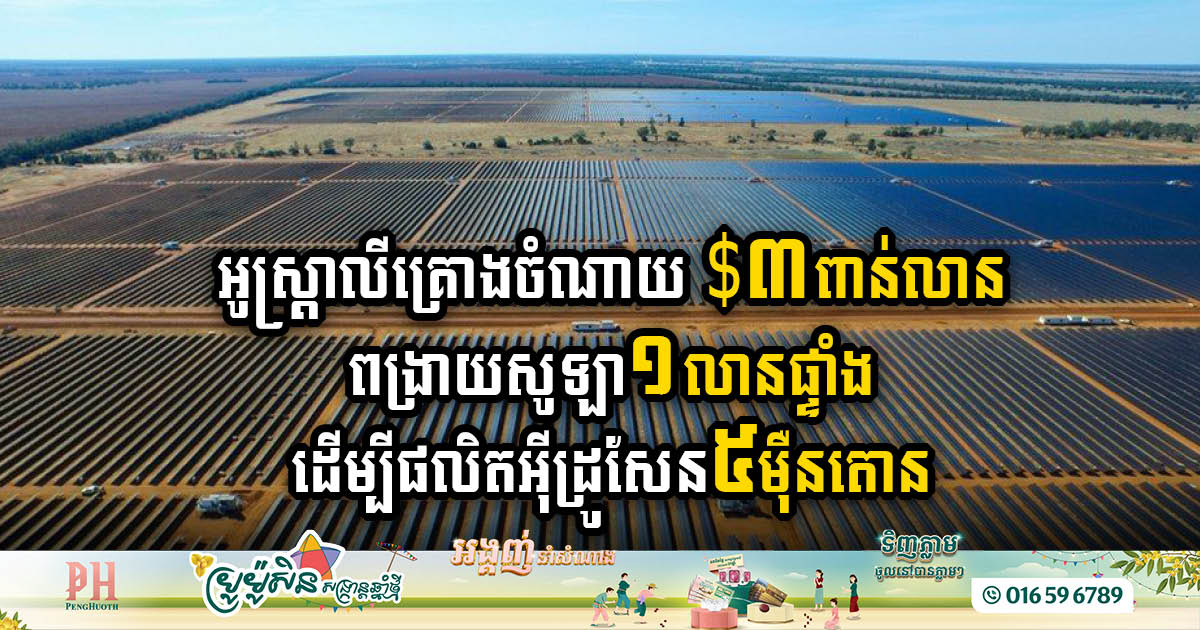ADB to release nearly US$10 billion to help Asia-Pacific climate crisis by 2023
By 2023, the Asian Development Bank (ADB) has decided to provide US$ 23.6 billion in assistance, including US$ 9.8 billion to address climate change in the Asia-Pacific region. This is according to the press release dated April 25, 2024. These funds have supported Developing Member Countries (DMCs) to address the worsening climate crisis as well […]
Cambodia Launches 1 Million Trees Plant Initiative While Enforcing Forest Protection Laws
Cambodia has embarked on an ambitious reforestation drive, aiming to plant at least 1 million trees annually to significantly expand its forest cover by more than 60% by 2050, announced HE Eang Sophalleth, Minister of Environment, at the National Workshop on Investment in Climate Change Adaptation through Agro-Ecological Landscape Restoration on 22 April 2024. The […]
Cambodia Mobilizes to Tackle Water Crisis Ahead of Delayed Rainy Season
As the dry season prolongs its grip on Cambodia, the Ministry of Rural Development has unveiled a comprehensive strategy to mitigate the impact of severe droughts and water shortages plaguing the nation. This initiative, detailed in the “Guidelines on Measures and Interventions on Water and Drinking Water Shortages Due to Climate Change,” published on 21 […]
MoE Initiates Green Recreation Initiatives in Two Major Cambodia’s National Parks
The Ministry of Environment (MOE) is spearheading efforts to establish green recreation corridors in two of Cambodia’s cherished national parks: Preah Suramarit Kosomak “Kirirom” National Park in Kampong Speu Province and Preah Jayavarman-Norodom “Phnom Kulen” National Park in Siem Reap. HE Eang Sophalleth, Minister of Environment, unveiled these initiatives during meetings on April 18 and […]
Cambodia Achieves Open Defecation-Free Status in 6 Provinces, 7 More Expected by Year End
Cambodia is making significant strides in achieving open defecation-free (ODF) status across its provinces. Presently, six provinces have successfully attained ODF status, with plans to announce seven more by the year’s end. The progress was revealed during a pivotal meeting chaired by HE Chhay Rithi Sen, Minister of Rural Development, on April 18, 2024. Discussions […]
87% of Property Developers in Asia Pacific Targets 100% Green Certified Portfolios by 2030
A recent study by JLL unveils a significant trend in the Asia Pacific region, with nine out of ten commercial real estate occupiers striving to achieve 100% green-certified portfolios by 2030, driven by corporate net zero carbon (NZC) goals. This revelation comes from Retalkasia’s report dated March 26, 2024. According to global real estate consulting […]



 ខ្មែរ
ខ្មែរ







